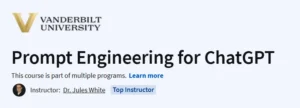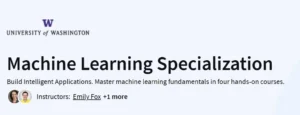What will you learn in this Process Mining: Data science in Action Course
Understand the fundamental principles of process mining and its role in data-driven decision making.
Discover process models from event logs using algorithms like Alpha Miner.
Apply conformance checking techniques to compare actual processes with predefined models.
Enhance process models with performance-related data to identify inefficiencies.
Gain hands-on experience with process mining tools such as ProM and Disco
Program Overview
1. Introduction and Data Mining Basics
⏳ 5 hours
Introduces the scope of process mining, types of analyses, and the role of event logs in extracting useful process information.
2. Process Models and Process Discovery
⏳ 3 hours
Covers the use of Petri nets and introduces Alpha Miner for generating process models from logs.
3. Different Types of Process Models
⏳ 3 hours
Explores advanced modeling techniques including BPMN and causal nets, used to represent complex workflows.
4. Discovery and Conformance Checking
⏳ 3 hours
Focuses on comparing real-life event data with expected models to detect deviations and compliance issues.
5. Operational Support and Predictive Insights
⏳ 3 hours
Demonstrates how process mining supports monitoring, prediction, and improvement of ongoing processes in real time.
6. Course Wrap-up and Final Project
⏳ 5 hours
Applies all covered concepts in a capstone project analyzing real-world datasets using tools like ProM.
Get certificate
Job Outlook
Equips learners for roles such as Process Analyst, Business Intelligence Analyst, and Data Scientist.
Highly applicable in industries like healthcare, logistics, IT services, manufacturing, and finance.
Builds practical knowledge for process optimization, compliance auditing, and performance monitoring.
Helps companies improve operational efficiency by transforming event data into actionable insights.
Specification: Process Mining: Data science in Action
|
FAQs
- The course is labeled as intermediate, which suggests some familiarity with data analysis concepts is expected.
- Basic understanding of databases, event logs, and process concepts will be helpful.
- Programming skills (e.g., in Python, R, or SQL) are not strictly required but will make it easier to work with datasets beyond the provided tools.
- The course includes exposure to professional tools such as ProM and Disco.
- You’ll work with sample datasets and possibly real-world case studies in assignments.
- What’s not fully clear is whether you’ll have full software licenses, limited trial versions, or only guided demonstrations.
- The course highlights applications across multiple industries, including healthcare, manufacturing, IT services, logistics, and finance.
- It is not clear if detailed, sector-specific case studies are included or if examples remain more general.
- For those aiming to apply process mining in a specific sector, supplementary learning may be needed.
- The course includes quizzes, graded assignments, and a final project to integrate knowledge.
- The extent of personalized instructor feedback is not specified; assessments may be mostly automated.
- Students seeking one-to-one guidance may need to combine the course with community discussions or mentoring.
- Completion provides a certificate that can be shared on LinkedIn or résumés.
- However, it is not an industry-standard credential or formally accredited by a governing body.
- Its recognition depends largely on employers’ views of online learning platforms.





